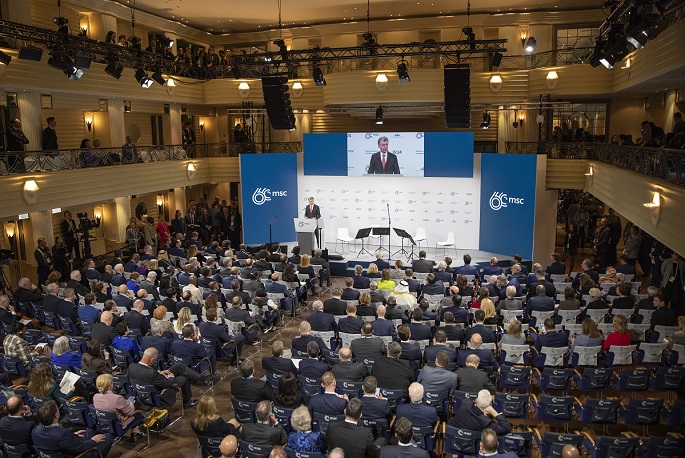MSC participants call for enhanced Int'l cooperation
Published : 19 Feb 2024, 00:11
Updated : 19 Feb 2024, 00:22
Participants and experts present at the just-concluded Munich Security Conference (MSC) have called for enhanced international cooperation in addressing global challenges, reported Xinhua.
"It was very clear that we cannot solve these (challenges) alone, as with the old way we have been solving problems, we have to open up (for cooperation)," MSC Chairman Christoph Heusgen said in his closing speech. He noted that thanks to the collaboration of multiple parties, silver linings were seen in solving various challenges.
On a side event co-organized by MSC and the Center for China and Globalization(CCG), MSC Vice Chairman Rainer Rudolph said that the deficiency in international cooperation highlighted in the Munich Security Report has been identified as the central challenge in the preparation of this year's conference.
Within these challenges, climate change emerges as a prominent one that is impossible for anyone to ignore or sidestep, Rudolph said.
The official also said that as geopolitical tensions have impacted cooperation among China, Europe and the United States on climate change policies, it is timely to hold a seminar discussing relevant cooperation.
Wang Huiyao, president of CCG, a leading non-governmental think tank in China, warned that the downward trend in global politics, increased geopolitical tensions and economic uncertainties may lead to a "lose-lose" situation.
"We must avoid falling into a 'lose-lose' situation due to the fragmentation of the international order. The Munich Security Report encourages everyone to think more seriously about how to stop this vicious cycle. Cooperation on climate change is expected to become a glimmer of hope," he noted.
Graham Allison, a professor at Harvard University's Kennedy School of Government, told Xinhua that "lose-lose" is a matter of choice.
"If we do something really stupid, we could have been lose-lose," the professor added.
For seemingly unsolvable problems, statecraft and imagination are needed. All parties should cooperate to establish a framework to make an unsolvable problem manageable, he said.
Mia Mottley, prime minister of Barbados, called for enhanced international collaboration in climate change governance while urging wealthier nations to act more assertively.
In addition to climate change, representatives and experts at the meeting also issued prescriptions for maintaining stability in the Asia-Pacific region, which is also through cooperation.
Lars Klingbeil, co-chairman of the Social Democratic Party of Germany, said he was delighted to see the China-U.S. summit last year in San Francisco which signaled dialogue and cooperation. "We could use the window of opportunity right now to find ways of communicating, to find ways of having a dialogue, to find ways of having cooperation," he said.
Ali Sabry, minister of foreign affairs of Sri Lanka, said that Asian Pacific countries had achieved so much during the last couple of decades because of peace and stability, which were translated into prosperity for the people in the region.
"But now people have started talking about de-coupling and de-risking, posing a threat to stability," the minister said, adding that it will ultimately turn into instability to hurt growth and the Global South.
He urged major countries to work together to enable each country to bring out its best.
Inaugurated in 1963, the MSC is an international platform for high-level discussions on global security issues and a venue for diplomatic initiatives to address security concerns. The 60th MSC ran from Feb. 16 to Feb. 18.


